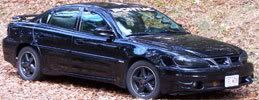My engine cooling system has been flushed, aluminum gaskets replaced, you know, the usual overhaul when it goes bad.
This is a common problem, no news to me. But I would like some suggestions as to what coolants are less prone to cause electrochemical incompatibility and how best to convert my engine to it (if necessary).
Thanks for the help.
This is a common problem, no news to me. But I would like some suggestions as to what coolants are less prone to cause electrochemical incompatibility and how best to convert my engine to it (if necessary).
Thanks for the help.


Comment